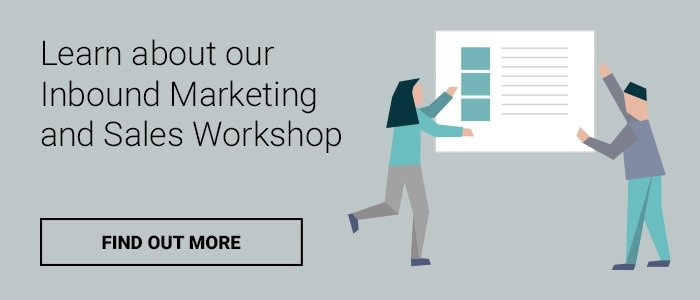HOW TO RUN A SUCCESSFUL MARKETING STRATEGY WORKSHOP? 10 USEFUL TIPS.
We increasingly live in an agile workplace, and Marketing Strategy workshops are a key part of agile practices.
Marketing strategy workshops are an essential tool for any marketing professional. They provide an opportunity to bring together a team and align them towards a common goal. However, running a successful marketing strategy workshop requires more than just getting everyone in a room and brainstorming ideas.
With so many workshops being run these days, how do you ensure your marketing strategy workshop inspires the creative thinking and positive outcomes you are looking for with your marketing goals and marketing strategies?
What is a marketing strategy workshop? And what outcomes can you expect?
A marketing strategy workshop should be an environment of collaboration. Where workshop ideas are generated or critical analysis and decision making are required from team members.
In this group environment we can harness the power of the collective wisdom and transform into something better than we could have achieved on our own. This could result in better alignment between marketing and sales, product development, better customer understanding, better branding, or better marketing and sales execution.
Marketing strategy workshops can be used to uncover new ideas for:
- Content strategy mapping
- Customer persona story mapping
- Brainstorming key content strategies
- Brand positioning strategy
- Copy or creative communications strategy
Sounds great, doesn’t it? However, running a marketing strategy workshop is about leadership and this blog is about providing you with the best chance to lead and achieve these collaborative outcomes.
10 useful tips on how to run a successful marketing strategy workshop:
01. Plan for success with plan B and C
Before running a marketing strategy workshop, you need to define the objectives of the workshop. What do you want to achieve? What are the goals? This will help you to stay focused during the workshop and ensure that you're working towards a common goal. Remember, a workshop is a lot of work and planning a successful one takes a lot of organisation and planning time.
You should firstly review why you want to hold a workshop and establish what you want this workshop to achieve. Should there be limitations regarding the scope? When should you schedule it for - morning or afternoon? Who should attend? What location is ideal? What about catering? What should the agenda be? Who will speak and when? There are so many elements that need to be thought of and planned for.
By having a plan, you will force yourself to think about the alternatives to the choices you have made. And when things inevitably veer ‘off plan’ you’ll have plan B and C options at the ready to cope with almost any scenario that might crop up in your workshop.
02. Communicate clearly housekeeping issues
If you are organising the marketing strategy workshop agenda, then you have been designated its leader, so you need to take charge from the start! Prepare a detailed agenda for the workshop. This will help you to stay on track and ensure that you cover all the necessary topics. And then share the agenda with the participants ahead of time so that they can come prepared.
It is usually the little things that derail your marketing strategy workshop and the root cause of these little things is predominately based around poor communication. This is particularly important in light of increasing occurrence of virtual marketing strategy workshops.
Housekeeping issues to provide clarity on are:
- Time allocated to agenda items
- Lunch and tea breaks
- Mobile phone and computer usage
- Toilet locations
- Participation requirements
- Who the casting voter will be
- Follow up plans
03. Understanding the importance of attendee roles
Invite the right people to the workshop. Make sure you have representatives from all the relevant teams, including sales, marketing, product, and any other team that might impact the marketing strategy. This will ensure that you have a well-rounded and diverse team to contribute ideas.
A marketing strategy workshop is not a focus group and nor is it an employee brainstorming session. It is a strategic meeting designed to achieve great outcomes.
So, the roles that people will play are important. There needs to be a decision maker to not only break deadlocks, but also provide leadership and vision. You will want some experts in the subject matter and potentially cross-functional representatives to attend as well. External stakeholders like creative writers, market researchers, or even suppliers and customers can be very insightful and help challenge normative thinking.
Mapping out these roles as a strategy workshop facilitator and leader is important to ensure smooth running and will reduce the emphasis on the facilitator being the main contributor. By manipulating the structure of the group, you can achieve outstanding outcomes in collaboration and thinking.
04. This is your chance to be creative and build confidence
Start with the encouragement of collaboration and participation among the team members. Make sure everyone has a chance to contribute their ideas and thoughts. This will help to build a sense of ownership and buy-in for the marketing strategy.
A workshop should inspire new and bigger thinking. It should be a vehicle that unlocks 'nuggets' that the business can leverage strategically. To do this you need to make attendees feel relaxed, welcome and important. Be sure to use carefully selected words that inspire and build up the confidence of attendees by checking in with them on how they are feeling is also a good idea.
Warm up exercises or icebreakers are a great starting point and these need not be related to the business at all.
The workshop facilitator and key business decision maker need to bring both their charming and challenging personalities - take attendees on a journey by inspiring them but also holding them accountable and seeking clarity around their contribution - always using interactive ways to get contributions flowing.
Finally, researching and presenting case studies from other industries that have faced similar challenges will stimulate thinking and help set new goals and a new vision to aspire to.
05. Select a strategy framework that works best in a workshop environment
We are all familiar with planning tools like a SWOT analysis. However, are they likely to stimulate new thinking? And will they work well in a workshop? Probably not.
In this customer-centric world, it’s best to start any strategy session with the end customer in mind.
Even for B2B businesses this thinking takes attendees away from their company’s own self-interest which is likely to be the biggest barrier you will face in generating new ideas and concepts. Running your own design thinking based ‘shark tank’ could be something to try. As a part of this design thinking you can get attendees to draw and start prototyping ideas and potential strategy options.
Often it’s only when marketing strategy is visualised as an execution that you can see its power or lack thereof.
Deep dive into your business with a marketing strategy workshop with us!


06. Use constraints to drive better, more critical thinking
Sometimes when it’s all blue sky it becomes all care and no responsibility. It can also lead to lazy thinking and doesn’t always lead to practical outcomes. By setting up constraints we force the brain to work harder.
By setting constraints, such as a tight deadline or a limited budget, individuals are forced to think outside the box and come up with innovative solutions that they might not have considered otherwise. Constraints can also help to focus the thinking process by narrowing down the scope of the problem and preventing individuals from becoming overwhelmed by too many options. Additionally, constraints can encourage collaboration and communication within a team, as individuals work together to find solutions that meet the set constraints.
These constraints don’t have to be practical considerations like budgets or time. You can even invent constraints like, “imagine if our major customer deleted our product range tomorrow. Or imagine a competitor doubles it marketing spend and actively targets our customers.”
You can use these types of constraints to generate diverse thinking for a wide range of potential scenarios.
07. Consider using games to generate new thinking with strategic outcomes
If you are adventurous you might be inclined to gamify* some of your favourite strategy planning tools. The best tools to gamify are those that force attendees to choose between alternative inputs. This could be anything from choosing between alternative marketplace scenarios, investment options to choosing between words that best represent the benefits and attributes of a brand.
Games using dice, cards and spinning devices ensure plenty of fun and engagement. Plus, they help stop any overt dominance from individual group members. Strategic games are also better for larger groups where it is likely that some members of the audience will go unheard.
Also remember your visual aids, such as whiteboards, posters, or digital tools, to help convey ideas and make the workshop more engaging. This will help participants to stay focused and remember key points.games are supposed to be fun, so make sure fun is at the heart of any games you decide on.
*Gamify = Taking something that already exists and integrating game elements and principles into it to improve motivation, understanding and engagement.
08. Document everything, especially the magic
In workshops, participants are given the freedom of thought for which they are rarely afforded on a day to day basis. So, while it is easy to get carried away in the moment, if you fail to create a record of what is being said and written, then you may well miss the magic being created.
Indeed, often the magic does not reveal itself until well after the workshop has finished, which is why a record of everything said and written is crucial. It is important that the facilitator focuses on his or her primary role – facilitation.
Utilising video or audio recording is a great way of ensuring everything is captured word for word. Alternatively, you can have a dedicated note taker attend the session.
Using large Butchers paper to record group exercises is a great idea, handouts that attendees can fill in or write on and post-it notes to indicate preferences and notes creates valuable, documented resources that you can refer back to.
Don't forget to assign action items at the end of the workshop. Make sure everyone knows what they need to do and when they need to do it. This will help to ensure that the ideas generated during the workshop are put into action.
09. Utilise individual exercises to avoid Group-think
Workshops Workshops can easily be dominated by large and influential personalities – especially leaders who have positional power. So, it’s a great idea to break up the group work with individual exercises.
It is recommended to begin with individual exercises after the initial warm-up and ice-breakers. This allows and commits everyone to the generation ideas, insights and feedback no matter how brilliant or silly they think they are.
We often use silent voting and fast five exercises as an extension of this thought, with the creator of an idea being given the chance to explain their thinking before any opinion and feedback is given. This creates a safe environment for those that conflict avoid and restrains dominant personalities so everyone is able to input.
Feedback can then be considered in the light of voting and the creator’s rationale.
10. Sum up with clarity and develop a follow up plan
Feeling exhausted? I am sure you will be, however despite the exhaustion, it’s really important to leave the group with clarity around what the next steps are and with the inspiration to execute the direction agreed.
Check in with the group. What was achieved? What became clearer? How are they feeling? Then the facilitator and or the decision maker needs to sum up with clarity and inspired insight.
Follow up after the workshop to ensure that action items are being completed. Check in with the team members to see how they're progressing and provide support where necessary.
Finally, evaluate the workshop to see what worked well and what could be improved. Use this feedback to refine your approach for future workshops and ensure that you're continually improving.
Planning and running a successful strategy workshop is hard work and there are no silver bullets for success. It requires careful planning, collaboration, and attention to detail. By following these ten tips, you can ensure that your workshop is engaging, productive, and ultimately leads to a successful marketing strategy.
Top tips for running a successful virtual marketing strategy workshop
Finally, since Covid-19 we now have a much more distributed workforce and as such, it's worthwhile understanding how to run a virtual marketing strategy workshop. Indeed, you might find it aids collaboration and independent thinking all at the same time.
- The tips above still apply! Don't let the technology dictate. Having said that, your facilitator needs to be trained and understand the technology - both in its strengths and weaknesses.
- Use breakout rooms for smaller group activities. Ensure you appoint a leader and set time limits.
- Don't over rely on presenting material - keep it short and conversational if you need to present and make sure and participants are maximised in the screen share.
- Don't think sketching and physical activities aren't important - they actually take on greater importance. With many platforms having a virtual whiteboards, use these types of activities to encourage collaboration.
- Lastly, select a video conferencing platform. There are plenty to choose from. For most businesses and particularly those on a budget, Microsoft Teams, Zoom and Google Meets should suffice.


